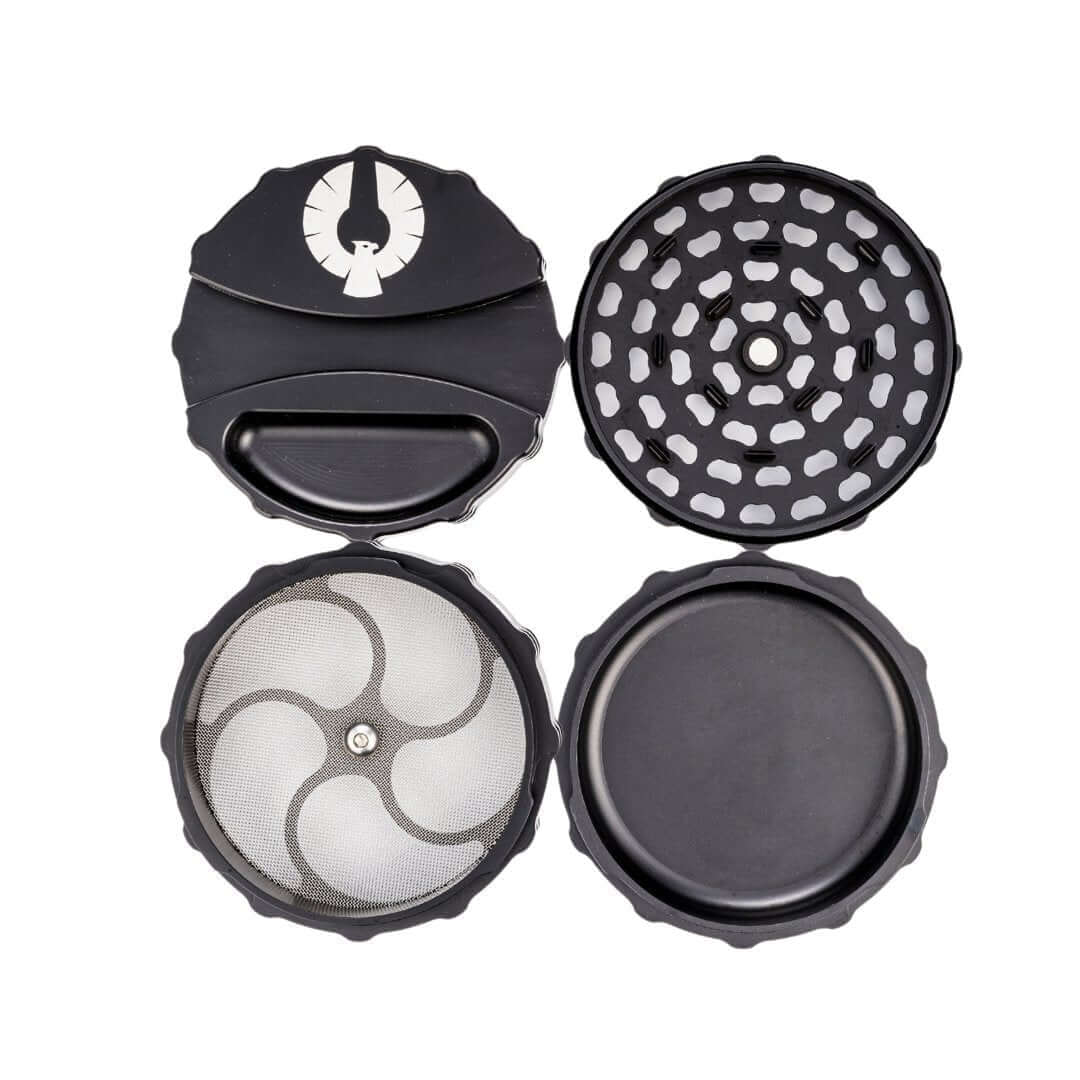Your Cart is Empty
FREE Shipping Over $100
FREE Shipping Over $100
Shop Herb Grinders
Cannabis and Cancer: Exploring Marijuana's Potential in Cancer Treatment
July 14, 2024 3 min read
Cannabis and Cancer: A Comprehensive Exploration of Marijuana's Role in Cancer Treatment
Introduction to Cannabis in Cancer Treatment

The landscape of cancer therapy is evolving, and one area that's gaining significant attention is the use of cannabis, especially marijuana, as a potential complementary treatment. While conventional treatments have been the cornerstone of cancer therapy, the exploration of alternative therapies like cannabis is driven by its potential to alleviate various cancer symptoms and improve patients' quality of life.
Understanding Rick Simpson Oil (RSO) in Cancer Therapy
Rick Simpson Oil, known as RSO, is emerging as a notable alternative in cancer treatment. This highly concentrated form of cannabis extract, typically rich in THC (tetrahydrocannabinol), is recognized for its potential to reduce pain, counteract nausea, and stimulate appetite in cancer patients. RSO's efficacy is believed to be linked to its interaction with the body's endocannabinoid system, which plays a role in regulating various physiological processes. However, the scientific backing for RSO is largely based on anecdotal evidence, and further research is needed to validate its therapeutic claims.
Cannabis-Infused Edibles for Cancer Symptom Management
For cancer patients seeking symptom relief, cannabis-infused edibles offer a discreet and more palatable choice. The market is abundant with various products, ranging from chocolates and gummies to beverages. These edibles are seen as a user-friendly way to control symptoms such as chronic pain, sleep disturbances, and appetite loss. However, determining the correct dosage is critical to minimize the risk of negative side effects and ensure effective symptom management.
Vaporizing Cannabis for Immediate Relief
Vaporizing cannabis is a method that heats the plant material without burning it, producing a vapor that is inhaled. This smoke-free option is gaining popularity among cancer patients for its perceived advantages in providing rapid relief and enabling precise dosing. It's particularly favored for managing acute symptoms like nausea and pain. Nevertheless, users must exercise caution in choosing quality products and adhere to safe usage practices.
Cannabinoids in Cancer Therapy: The Research Perspective

The scientific community is actively investigating the role of cannabinoids in cancer therapy. Preliminary studies suggest that cannabinoids may exhibit anti-tumor properties, potentially playing a role in hindering cancer cell proliferation. However, this area of research is still in its infancy, and comprehensive studies are essential to fully understand the capabilities and limitations of cannabinoids in cancer treatment.
Personal Testimonials and Diverse Experiences
The personal experiences of cancer patients who have incorporated cannabis into their treatment regimens offer valuable insights. These testimonials vary widely, with some patients reporting significant symptom relief, while others experience mixed results. These personal stories highlight the subjective nature of cannabis' effectiveness and underscore the need for individualized approaches in using cannabis for cancer therapy.

Conclusion: The Future of Cannabis in Cancer Treatment
In summary, cannabis, including products like RSO, edibles, and vaporized forms, shows potential in easing the symptoms associated with cancer. However, its role as a standard component in cancer treatment is still under investigation and requires robust scientific evidence, clinical trials, and careful medical oversight. The future of cannabis in cancer therapy hinges on continued research and the collaboration of medical professionals, researchers, and patients. This concerted effort is crucial for understanding the full spectrum of cannabis' therapeutic potential and safely integrating it into cancer care protocols.
Also in The Grind

Understanding Cannabis Terpenes: Enhancing Your Experience
November 02, 2025 5 min read
Terpenes play a crucial role in the flavor and effects of cannabis, yet they’re often overlooked. This article breaks down what terpenes are, how they work with cannabinoids, and how to use them to tailor your cannabis experience. Discover the science behind the smells and effects of your favorite strains.

The Endocannabinoid System: How Cannabis Interacts with Our Bodies
October 19, 2025 2 min read
Continue Reading
The Ultimate Grinder Guide: How to Choose the Right Grinder for You
October 10, 2025 3 min read
Continue Reading






